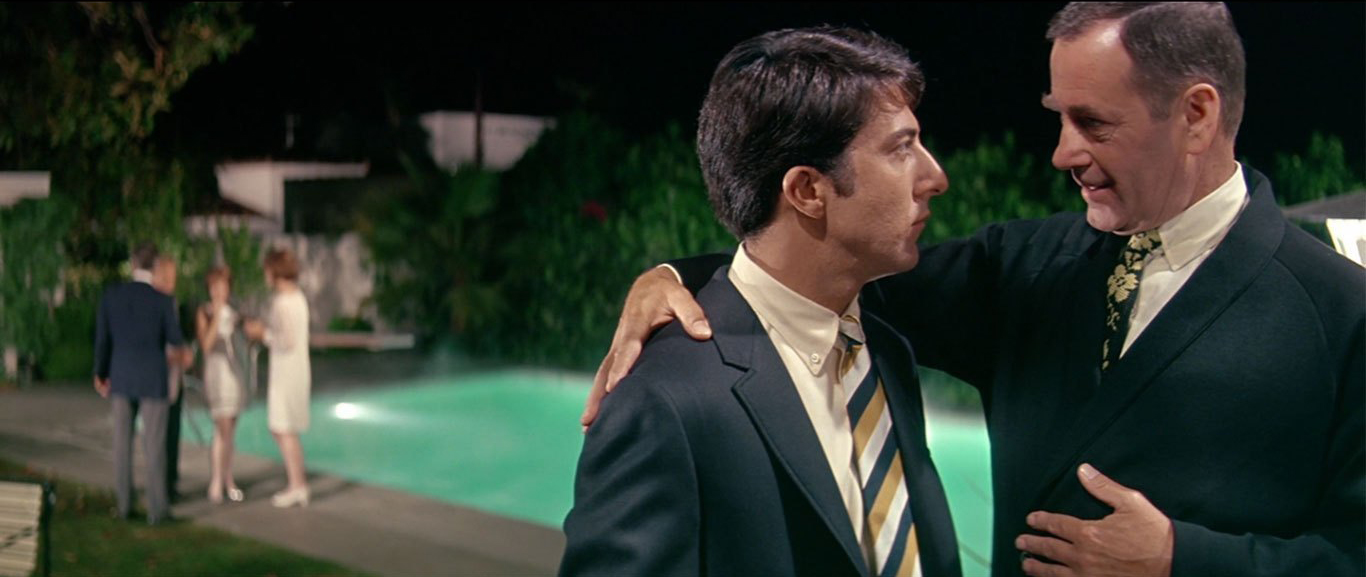
Benjamin Braddock, the part played by Dustin Hoffman in director Mike Nichol’s acclaimed film “The Graduate,” is taken aside by a dinner guest at the graduation party thrown for him by his parents and quietly told the secret to his future success. “Plastics,” the guest sagely offers the non-plussed Benjamin, “Plastics.” “Okay, thanks sir,” offers Benjamin, as clueless about the comment as he is about virtually everything else going on around him.
When “The Graduate” appeared in theaters in 1967, the economic benefit of a career in plastics was easy to understand. The fifties and sixties were the decades when plastic began to fill every niche in our burgeoning consumer society. From packaging and shopping bags, toys to automobiles, plastic had major social and financial impact, but it was not simply plastic per se that the graduate’s dinner guest was invoking, or a cinematic statement about artificiality. Rather, the reference and the film itself were pointing to the theme of “plasticity.”
Plasticity is a quality of being which allows and encourages change. While hewing to the lofty aspirations of his upper middle class parents, Benjamin slowly discovers that society, relationships, and life itself are plastic and subject to being bent, shaped, and molded. Adaptability to change is plasticity; the alternative is rigidity, obsolescence and death.
Brain science uses the term “plasticity” to refer to the brain’s ability to re-wire itself and adapt to new input or injury. Though some structures of the brain cannot be repaired if damaged, much functionality can be restored by harnessing and establishing new neural connections through training. Thus, for example, some stroke victims deprived of the ability to speak can learn to speak again.
As the movie begins, Ben is increasingly lonely, uncomfortable and alienated living a life dictated by others, but he slowly awakens to the realization that his life is his own and he can make choices. The plasticity of life is revealed to Ben through his experience of an affair with the married Mrs. Robinson and then her daughter Elaine. In short, he discovers life is workable. Though dazed as he recovers from the dark numbness of his confusion and having completely broken customary social conventions and expectations, by the end of the film he grins at his newfound awareness of feeling powerful and alive.
Society too, is exhibits plasticity, because society is human. Despite the seemingly solid appearance of rules, regulations, structures, systems and all that accompanies them, the true nature of society is plastic. Children and teenagers instinctively intuit this truth, pushing and pulling at conventional limits to determine the tolerance of social plasticity. They inevitably meet resistance; over time the urge towards experimentation declines and like most they settle into one or another “safe” routine. Like Benjamin, having lost sight of plasticity, some simply drift passively through life like floating deadwood pushed by wind and carried by currents.
We can easily see that yesterday’s safe routine is quickly bent and refashioned by social change. Jobs and careers once considered “life-long” dissolve; high-priced products become nearly worthless overnight. Social conventions shift and morph; cultures add new words and discard others. Even our bodies themselves are plastic, literally changing and aging before our eyes as time and gravity bend them towards their will.
“Plastics, Benjamin,” the Braddock’s dinner guest might have added, “is life itself.”